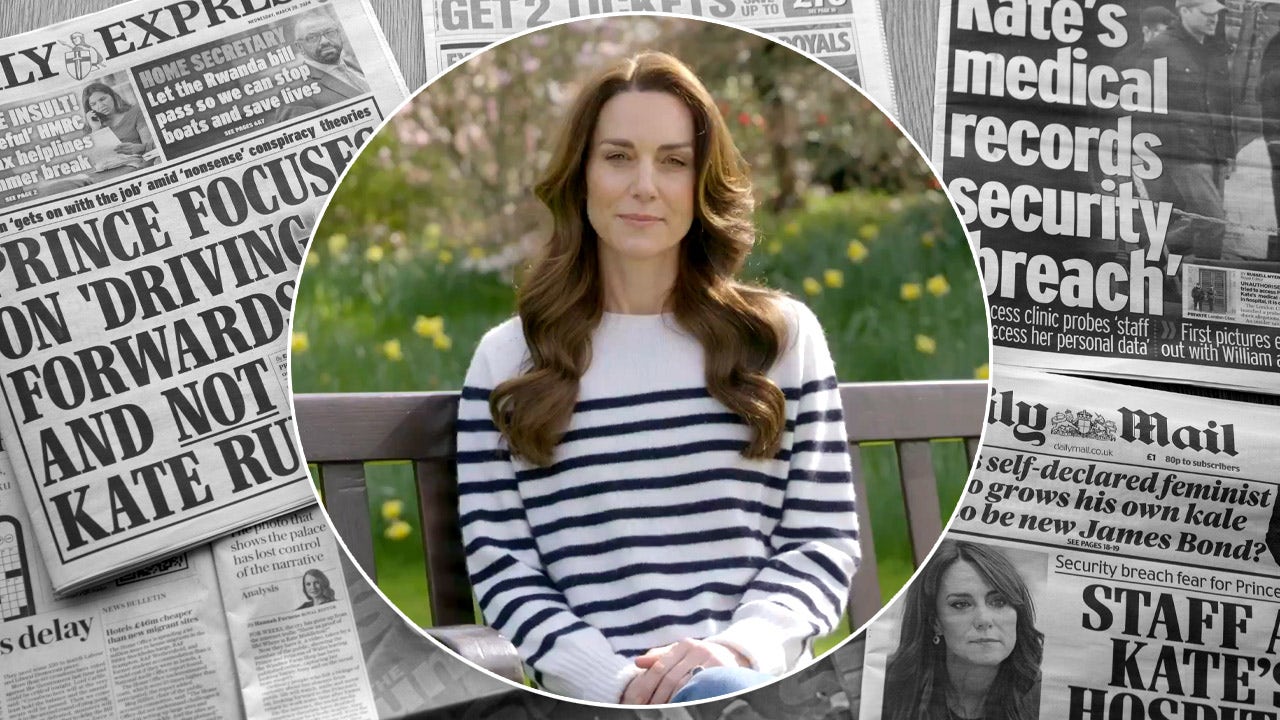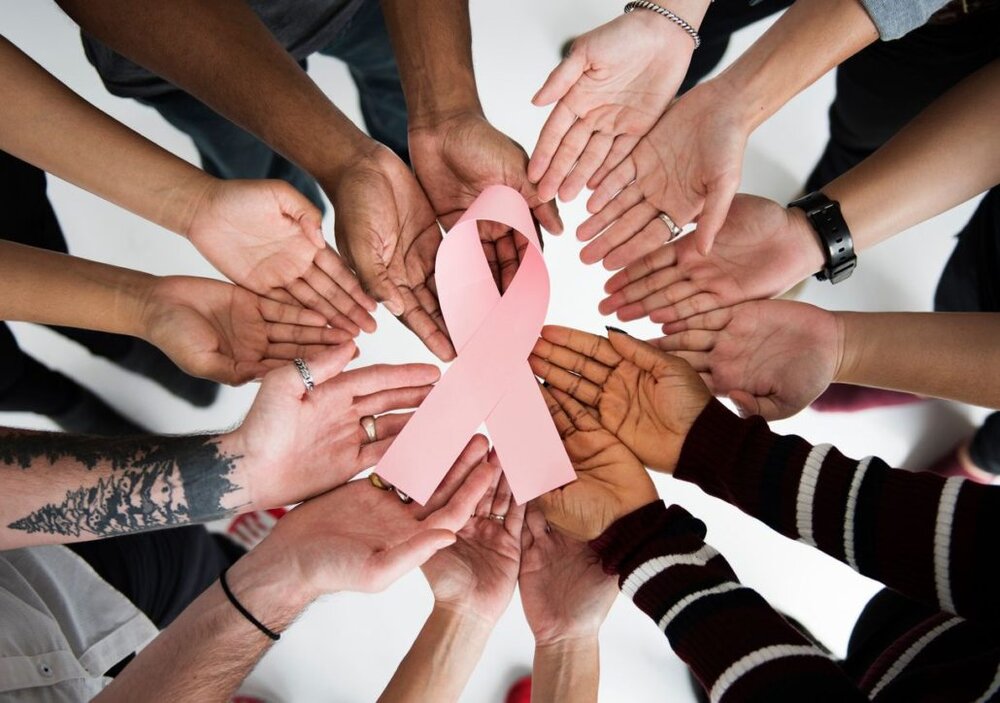Kate, Princess of Wales, Declares She Has Cancer; Why The Surge In Cancer Rates Globally
Princess Kate of Wales, the wife of Prince William of the British monarchy, recently revealed a significant health challenge - following major abdominal surgery in January, tests revealed the presence of cancer. Today, cancer has emerged as a significant health challenge, with its prevalence steadily rising across populations globally. While the ageing process remains a predominant factor influencing genetic mutations and cancer development, various lifestyle choices and environmental exposures also significantly impact cancer risk.

Kate, the Princess of Wales, Britain, announced on Friday that she had started preventative chemotherapy following tests conducted after her significant abdominal surgery in January, revealed the presence of cancer.
The diagnosis compounds the health challenges faced by the British royal family, as King Charles is also currently undergoing cancer treatment.
The 42-year-old wife of Prince William, expressed her profound astonishment at the cancer diagnosis. In January, Kate underwent a planned surgery for an undisclosed non-cancerous condition, which led to her hospitalization for two weeks.
However, despite initial reports of a successful procedure, subsequent tests confirmed the existence of cancer.

Kate, however, reassured the public of her well-being and increasing strength through a video message filmed on Wednesday. The video portrayed her in casual attire, although she appeared pale and fatigued.
In her statement, Kate disclosed that her medical team recommended a course of preventative chemotherapy, which she has now started.
Kate acknowledged the shock of the diagnosis, yet she emphasized her and William’s commitment to handling the situation privately for the sake of their young family.
The announcement comes amid speculation regarding her prolonged absence from official duties, initially slated to extend until after Easter.
Following Kate’s earlier surgery, Buckingham Palace disclosed that King Charles underwent a corrective procedure for an enlarged prostate at the same hospital.
Subsequently, it was revealed in February that he, too, was undergoing cancer treatment, necessitating the postponement of his public engagements.
A spokesperson from Buckingham Palace conveyed King Charles‘s admiration for Kate’s courage in addressing her condition publicly, proclaiming his steadfast support for her and the entire family during this challenging period.
Prince Harry, despite his estrangement from William, conveyed his support for Kate’s recovery alongside his wife Meghan, the Duke and Duchess of Sussex.
Messages of solidarity poured in from British political figures and the office of U.S. President Joe Biden, expressing well wishes for Kate Middleton, as she is commonly known.
Kensington Palace, Kate’s official residence, reiterated her right to medical privacy and declined to disclose further details about the specific type of cancer she is battling, although confirming her ongoing recovery and the commencement of preventative chemotherapy since February.

Handling Privacy And Timing
The announcement’s timing was deliberate since it coincided with the onset of their school holidays, ensuring that Prince George, Princess Charlotte, and Prince Louis had sufficient time to process the news privately before it became public knowledge.
In her video, Kate stated the necessity of taking time to recuperate from her major surgery before commencing treatment; equally important was the need to explain the situation to her children in a manner suitable for their understanding, reassuring them of her well-being and ongoing recovery.
Public appearances by Kate have been scarce since her attendance at a Christmas Day church service alongside other members of the royal family.
However, a recently surfaced video captured her appearing healthy and engaged, accompanying her husband during a visit to a farm shop near their Windsor residence.
Expressing a desire for privacy during her treatment, Kate conveyed her anticipation of returning to her duties once she has fully recovered.
British Prime Minister Rishi Sunak extended the nation’s support to Kate, applauding her courage in the face of intense scrutiny and unfair treatment from certain media outlets and social platforms.
Medical experts noted the challenge of estimating the duration of Kate’s treatment without additional information regarding the type of cancer detected.
Professor Andrew Beggs explained that preventative chemotherapy aims to reduce the risk of cancer recurrence, likening it to sanitizing a floor to eliminate any spilled cells.
Kensington Palace affirmed Prince William’s commitment to fulfilling his duties while supporting his wife, echoing the strength and positivity evident in Kate’s demeanor as she focuses on her recovery.
Regrettably, according to reports neither will be present for the traditional Easter Sunday church service at Windsor.
Kate, known for her historic marriage to Prince William in 2011, remains one of the most beloved figures in the royal family.

Why The Rise In Cancer Rates Globally
The primary contributor to the escalating rates of cancer is the natural process of ageing, as a significant majority of cancer diagnoses occur in individuals aged 60 and above.
Cancer fundamentally arises from genetic mutations, where errors accumulate within the DNA code, initiating the transformation of cells towards malignancy. As one ages, these errors accumulate, elevating the risk of cancer development as the body accrues more genetic faults over time.
As life expectancy continues to rise, a larger segment of the population now reaches ages where the risk of cancer significantly increases. As a result, there’s a greater number of individuals susceptible to cancer than ever before.
Although aging is a primary factor, various aspects of our lives influence the pace at which genetic errors accumulate, either accelerating or decelerating the process.
These factors include lifestyle choices, genetic predispositions, exposure to viruses, occupational hazards, and environmental pollutants, all of which contribute uniquely to an individual’s cancer risk.
Notable lifestyle trends, such as the rising prevalence of obesity and sun exposure habits, significantly contribute to the increased risk of various cancers, including melanoma skin cancer and those associated with obesity.
Moreover, changes in healthcare practices, such as increased breast cancer detection through screening programs, particularly in women, and the implementation of prostate cancer screening in men, have led to heightened cancer diagnoses, albeit with varying implications.
Despite these trends, there has been a notable decline in lung cancer rates, primarily attributable to reduced tobacco consumption among men.
However, challenges persist, especially among women, where smoking-related cancer rates continue to rise due to a delayed decline in smoking prevalence compared to men.

Surviving Cancer
Cancer survival rates are on the rise, mirroring the gradual increase in lifetime cancer risk observed over time, which correlates with the trend of lengthening life expectancies.
Unlike a sudden surge, this upward trajectory has been consistent and reflective of societal advancements.
Significantly, improvements in cancer survival rates are evident.
Four decades ago, only a quarter of individuals diagnosed with cancer survived for a decade or more. Presently, that statistic has doubled, with two out of every four cancer patients achieving a ten-year survival milestone.
The collective goal is to further expedite progress, aiming for three out of four cancer patients to survive within the next two decades.

How To Reduce Cancer Risk
One cannot state the paramount importance of adopting a healthy lifestyle, eating a diet abundant in antioxidants while minimizing the consumption of processed meats and red meat, and abstaining from tobacco and alcohol, which play a key role in mitigating cancer risk.
Furthermore, vigilance towards potential warning signs such as unexplained weight loss, persistent coughing, or the presence of blood in bodily fluids is essential.
For individuals at heightened risk, proactive screening tests offer the opportunity to detect cancer in its early stages, even in the absence of symptoms.
Medical Professionals stress the importance of awareness and proactive healthcare, noting that while cancer can affect anyone, early detection significantly enhances treatment outcomes.
Therefore, through awareness and understanding, individuals can empower themselves to detect and address cancer promptly, thereby increasing the likelihood of successful intervention.




